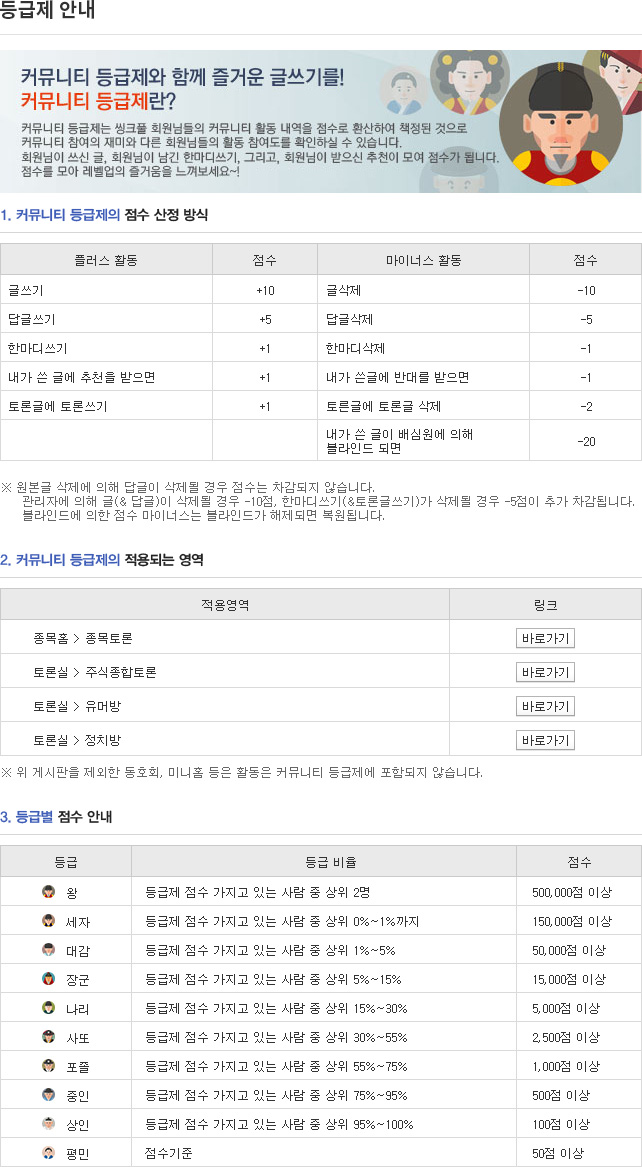종목토론카테고리
게시판버튼
게시글 제목
eg 매도해랑... 이원집정제.... 의원내각제에 가깝다....게시글 내용
GNP whip calls for basic law revision in 2010
Rep. Ahn Sang-soo, floor leader of the ruling Grand National Party, said yesterday that a constitutional revision to make power more balanced should be made in the first half of next year.
"We should begin the debate on the constitutional revision in this year"s regular parliamentary session," Ahn said in a KBS radio interview. The parliamentary begins in September.
"To overcome regionalism, it is sensible that power should be divided, and for this to materialize, rewriting the Constitution is needed."
He said that he "personally" supports the system in which more power is given to the prime minister so as to keep power from being concentrated too much with the president.
Referring to the recent remarks made by President Lee Myung-bak on Liberation Day, which underscored the need to reorganize the electoral districts, Ahn said Lee was not necessarily referring to the medium or constituency system that elects two or more lawmakers in one electoral district.
The current election system - based on a mixed form of a single-winner election and proportional representation - has been criticized for worsening regionalism and encouraging elected politicians to focus only on regional interests.
The method has allowed the GNP to sweep the southeastern districts and the main opposition Democratic Party to dominate the southwestern constituencies.
Former President Roh Moo-hyun and liberals had proposed a shift to a multi-winner system. The change is said to be unfavorable to the GNP because its stronghold has far more constituencies than its rival"s political base.
"The party leadership has no intention of pushing for introducing the medium or large constituency system at all," Ahn said.
"I am skeptical that such systems would definitely enhance national unity. After combining opinions of party lawmakers, we will negotiate with the opposition parties."
Separately, a parliamentary advisory committee on constitutional research yesterday adopted its final report, wrapping up its one-year research.
In the report, a majority of committee members suggested a dual executive system similar to the parliamentary cabinet system, which strengthens the authority of the prime minister, and bicameralism.
The committee, which consists of some 15 legal and political experts, said it would convey the report to National Assembly Speaker Kim Hyong-o on Monday next week.
Under the dual executive system, the prime minister is elected by the parliament and is given a significant power in managing state affairs, including public security, economic policies, diplomacy, defense and personnel. Currently, the prime minister is appointed by the president and has a role of aiding the president.
Under the model, the president, who is elected by popular voting and mandated to serve a five-year single term, has the right to declare martial law in an emergency and dissolve the legislature upon the prime minister"s recommendation.
As the model means a lessening of presidential power, observers expect that it is likely to face objections from aspiring presidents.
"The final decision will be made by a special parliamentary committee, which will be formed in the future," committee chief Kim Jong-in told reporters.
The committee - which is associated with the office of the Assembly chief - was launched in September last year.
To reverse the past revisions that were made by authoritarian rulers to stay in power, the constitution was last amended in 1987 to restore a direct presidential election and reduce the seven-year presidential term by two years.
By Song Sang-ho
2009.08.29
게시글 찬성/반대
- 0추천
- 0반대
운영배심원의견
운영배심원의견이란
운영배심원(10인 이하)이 의견을 행사할 수 있습니다.
운영배심원 4인이 글 내리기에 의견을 행사하게 되면
해당 글의 추천수와 반대수를 비교하여 반대수가
추천수를 넘어서는 경우에는 해당 글이 블라인드 처리
됩니다.







댓글목록